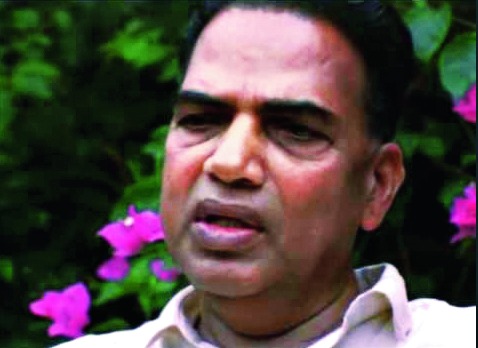
Bangalore: Underground romance, once part of communist lore in Kerala, has returned to the political centre-stage in the state but in the shape of an alleged child abuse controversy around the late Marxist legend A.K. Gopalan aka AKG.
A Congress MLA has accused the late communist of having committed " bala peedanam", the literal translation of which is "child torture or torment" but also can mean paedophilia, and that he had a "love affair" with a minor in the 1940s, when he was a married and middle-aged man, before making her his second wife a decade on.
What has given V.T. Balram's allegation a political overtone is his attempt to insinuate a parallel with the charges of sexual exploitation against former chief minister Oommen Chandy and other Kerala Congress politicians in connection with the so-called solar scam. Balram also made a reference to the "revolutionary activities comrades undertook in the homes that have them shelter" when they went underground decades ago.
AKG (1904-77), the Lok Sabha's first leader of the Opposition, was one of the tallest communist leaders in the country. His name may strike a chord in Calcutta because he founded the cooperative that launched the Indian Coffee House chain, including the celebrated one on College Street.
Within hours of Balram, 39, making his allegation in a Facebook post on Friday night, suspected CPM youth wing activists hurled empty liquor bottles and stones at his office in his constituency, Thrithala, in Malappuram. Police have registered a case based on a complaint by the MLA's office secretary.
To back up his allegation, Balram has cited AKG's "own words" in his autobiography and a report headlined "Love in the time of struggle" in The Hindu, carried on December 20, 2001, whose snapshot he has posted. "The Hindu story clearly says the marriage followed a decade-old love affair. From what we know, Susheela was 22 years old (when she married AKG in 1952). Going by that, one only needs to calculate how old she was when the affair started," Balram has said in his post, written in Malayalam.
"AKG first met Susheela when he was in hiding at her home in 1940. So it's clear that Susheela... born in December 1929, would be 10 or 11 years then. His guilt in dragging a young girl into a relationship and then overcoming it are all written clearly in AKG's own words." Balram has also cited how AKG later married Susheela "when his first wife was still alive".
AKG wrote in his autobiography that he had unsuccessfully tried to dissuade Susheela from falling in love with him, and had waited till she turned an adult to marry her.
Stories have abounded for decades about underground relationships flourishing when communist leaders went into hiding after their party was banned in the 1940s. At least one movie, loosely based on a communist couple, suggests that the husband had a child with a woman he had met in the house where he was hiding before he married a party colleague.
Anticipating that many feathers would be ruffled, Balram wrote: "AKG may be an idol to many. Everyone thinks highly of his public life and parliamentary life. But that doesn't mean one cannot repeat information about his personal life available in the public domain."
State minister M.M. Mani, known for his rude language, questioned Balram's parentage and added: "What else can I say against this man's third-rate comments against a great leader like AKG?"
Congress leaders, including Chandy, said Balram had crossed the line. Many in the party want Balram to apologise and withdraw his remark.
Many AKG admirers attacked or threatened Balram on social media platforms. "Only a fourth-rate Congress member can interpret love as child abuse," wrote Mohammed Akkarayil.
"Balram, if you are man enough, you must remain in your office today (as) AKG's boys are coming to see you," Kebeer Thottumukk threatened.
Some, however, defended Balram and asked how people who abuse Congress leaders from Rajiv Gandhi to Rahul can expect to escape retaliation against their own icons.
An upcoming Congress politician, Balram had attracted the spotlight last June when he broke with a 19-year habit of vegetarianism and publicly ate beef to protest the Centre's anti-beef policies.
That it has taken a sexual abuse controversy to bring AKG back into public consciousness is a testimony to the state of power politics.
"Till a few years ago, all Indian Coffee Houses used to have a photo of AKG. But some of them don't any more as the new generation of employees probably don't know about him," CPM parliamentarian Mohammad Salim said.
"Besides, the Centre is apathetic to these historic places and sees them as breeding grounds for Leftists."
The controversy has come as a blessing for the Pinarayi Vijayan government at a time many of the ongoing district-level meetings of the CPM have slammed it over police atrocities and inadequate cyclone relief.
The episode re-emphasises longstanding questions about the CPM's claims of being tolerant of others' views. The party had in the 1970s threatened to cut off the hands of writer and CPM sympathiser M. Sukumaran for writing a novel critical of it, and in the 1980s hounded cultural activists who tried to stage poet-activist Civic Chandran's play Whom did you make a communist?, seen as against the party.











